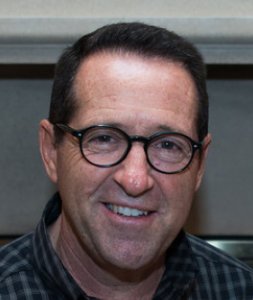Truth Seeker

What is true happiness, and where can it be found ?
... my progress thus far
True happiness, in my experience, is not found in asking existential questions like… Who am I? or Where did I come from? I’ve found these questions lead in the opposite direction of the happiness and well-being I seek.
Audio Introduction
I have learned the more appropriate questions are…
- What when I do it leads to well-being? (for me and others)
- What when I do it leads to stress? (for me and others)
This advice, and line of questioning, has led me to learning from the results of my choices. It helps when I break down the concept of “choice” into three (3) parts…
- Intentions – my thoughts, feelings, and perceptions
- Actions – my words and deeds
- Results – my tasks, projects, and relationships
I then apply the following terms, in order to judge the quality of my choices… (while being mindful to not judge me as a person)
- Skillful intentions/actions are those choices that result in advancing my well-being and the well-being of others
- Unskillful intentions/actions are those choices that result in causing internal stress to myself and others
This has led me to categorize my individual development practices into…
- Practices where I develop skillful intentions/actions, and
- Practices where I abandon unskillful intentions/actions
I am very grateful to those, further down this path, who have helped me learn and apply the age-old practices outlined below.
Develop Skillful Intentions
I have discovered (4) daily practices that help me develop quality relationships.
- I regularly wish myself and others well. This has proven to counteract negative thinking toward others
- I look for ways to help relieve my inner stress and the stress of others.
- I make an effort to feel joyful when I and others act skillfully.
- I simply let go of my expectations (when I fail at either 2 or 3 above), and return to the awareness of my breath/energy. This particular practice serves to give me relief from my striving to be perfect.
In addition to the four, relationship based practices, I meditate daily as it helps me engage in the four relationship practices, as well as strengthens my capacity to abandon the stressful habits I create. In addition to meditation, I read inspiring and related content, keep a daily journal, and practice single-pointed attention (mindfulness) during the day.
Lastly, I find the practices of restraint and contentment to be keystone habits as they reduce and illuminate my addictions and also sharpen my ability to be more aware of my choices. These practices also help me keep perspective on the more important issues of life.
Abandon Unskillful Intentions
I have found that the internal stress I feel in response to my external experience is caused by my past habits of greed, conceit, or ignorance. When I step out of my storyline, I begin to see my role in the stress I’m causing, and likewise create the potential for me to construct more skillful intentions.
Reflection: When I reflect in my daily journal, even though I missed the opportunity to see my actions in real-time, I can question the intentions that preceded my unskillful actions and results. My practice is to ask… What were the possible intentions that preceded the unskillful action. What could have been the allure? What are the drawbacks of the intention/action?
Real-time: When I pay close attention to my unpleasant feelings, I can step out of the storyline that is preventing me from seeing things more clearly. When this happens, I can either get below the story line (feelings and perceptions) or construct a more skillful story, as some of the stories/habits are easier to let go of than others.
Even though I reflect after the fact with a journal, it generates desire for me to keep my practice going so that I can experience the intention and action in real-time, and where I found real change takes place.
Conclusions
I have discovered that internal stress is a very complex process, and clearly not linear. I equate this complex (mind/body) process to complicated systems such as climate change, bridge design, cancer, and animal population/extinction. Like these systems, there are many feedback loops in the process which represent potential areas where the system can either be intensified, lessened, or broken.
I’ve noticed that my feelings and perceptions come into play during many of these feedback loops. Therefore, I believe that the more I develop awareness and skills with my feelings and perceptions, the better chance I have to either lessen or eliminate internal stress once and for all. Conversely, if I ignore my feelings and perceptions, I’m just going to make matters worse for myself in the future… as the challenges of aging are clearly working against me.
The way I see it… there is nothing wrong with enjoying sense pleasures and avoiding some pain, however I see my inner world as the real interpreter of my experience, and hence where I should focus more of my attention. It’s worth noting that finding pleasure, in my inner body, has helped tame my passion for sense pleasures, and I credit my teacher and my regular meditation practice with finding this inner pleasure.
A wise person once told me… “Your real world is actually constructed, in your mind, BEFORE sensory contact with the outer world”.
With time and practice, I’m getting better at sharing this timeless truth with others who seem open to looking inward. I find it very productive and rewarding to develop “training partnerships” with those who practice similarly. I encourage this group collaboration via Admirable Friends.
TAKE AIM… LET GO